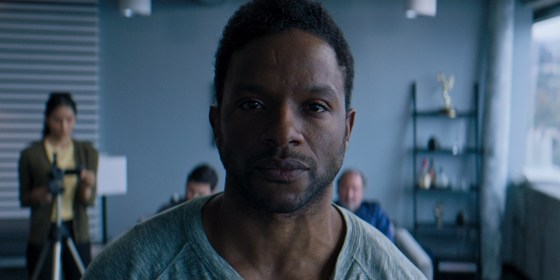Josiah – Short Film – Film Review

Practices within the acting world have recently been subjected to scrutiny with the #MeToo movement exposing levels of sexual harassment and bias in the workplace. However, the process of casting such actors in the first instance has not been as thoroughly dissected concerning any demonstrable bias. Josiah differs in this regard with an immersive journey within the nuances of acting auditions from the perspective of a black actor. Josiah’s 19 minute run time packs in an unflinching portrayal of unconscious bias that exists in casting roles. The film’s unparalleled strength is in its ability to invoke that inner reflection within its audience concerning the unsettling scenarios revealed.
Finding that dream role as an actor must be a feat in itself. After months of waiting or attending audition after audition the process probably seems exhausting! When an interesting sounding role appears, even with a few questionable elements, the instinct understandably must be to try to secure the role no matter the cost. Josiah accentuates that inner tension in portraying that role of a lifetime which has problematic aspects and the impact to one’s self-confidence and beliefs within the process.
Josiah fully immerses its audience within its protagonist Brandon’s audition for a stereotypical role depicting black pain. Within many Hollywood productions those roles, for the most part, are the only ones available for the few black actors in the industry. Such elements are compounded further within productions portraying historical periods with overly racist dimensions. Difficult internal decisions are required from the black actor in the first instance and Josiah illustrates the uneasiness felt by Brandon, played by an excellent Luke Forbes. The skilful editing as the camera pans around the room presents this turmoil effectively. Being the only one in the room that is black presents those challenges to an actor’s voice as it is difficult to establish whether there is that opportunity for your voice to be heard without being detrimental to any future opportunities.

Josiah does not shirk away from presenting that conundrum to the full extent. Where practices were once accepted within the period in which an acting role is set, is it acceptable to repeat them now in modern times? It is a subtle question posed within the film and it exposes the bias that still exists despite the recognition of racial stereotypes. Josiah illustrates that sense of ‘other’ effectively within its simple structure. There may be many situations whereby those leaders within organisations may be uttering outmoded, offensive words and undertaking behaviours now recognised to be discriminatory but are rarely challenged. The power dynamics remain intact and as a junior actor there may be that unwillingness, in Brandon’s case, to challenge the status quo.
In these modern times, the ideal scenario would be that such situations would no longer exist so that inner conversations to secure a job by staying quiet or run the risk of ‘blotting your copybook’ by denouncing discriminatory actions would not be necessary. Unfortunately, Brandon’s situation is likely to resonate with many black actors in Hollywood and is reflective of the current casting practices within auditions. Josiah presents these implicit tensions subtly which reflects the insidious discriminatory treatment that continues to exist; it is always expected that other leaders might be the ones to disrupt the existing biases within workplace culture but, as the film highlights, the preference is often to ignore the offence and placate those that are discriminatory.
Director Kyle Laursen has crafted a tale filled with unspoken tension depicting the stereotyping pervading the casting process. It is a refreshing perspective to witness the viewpoint of auditions from the black experience. Impressively, Laursen has delivered a taut tale simmering with emotions and questions concerning the progression for change within the industry. Should the various institutions self-regulate and instruct such change to combat unconscious biases that exist within workplace cultures? Or does the power for change remain with those actors, that are already marginalised and part of a minority, to find their voice to speak out for change.
Josiah is a thought-provoking, well-made film which will hopefully shine a light on the outmoded biases that remain within Hollywood. It is also hoped that this film will be a talking point to promote further well-needed discussions for change.

